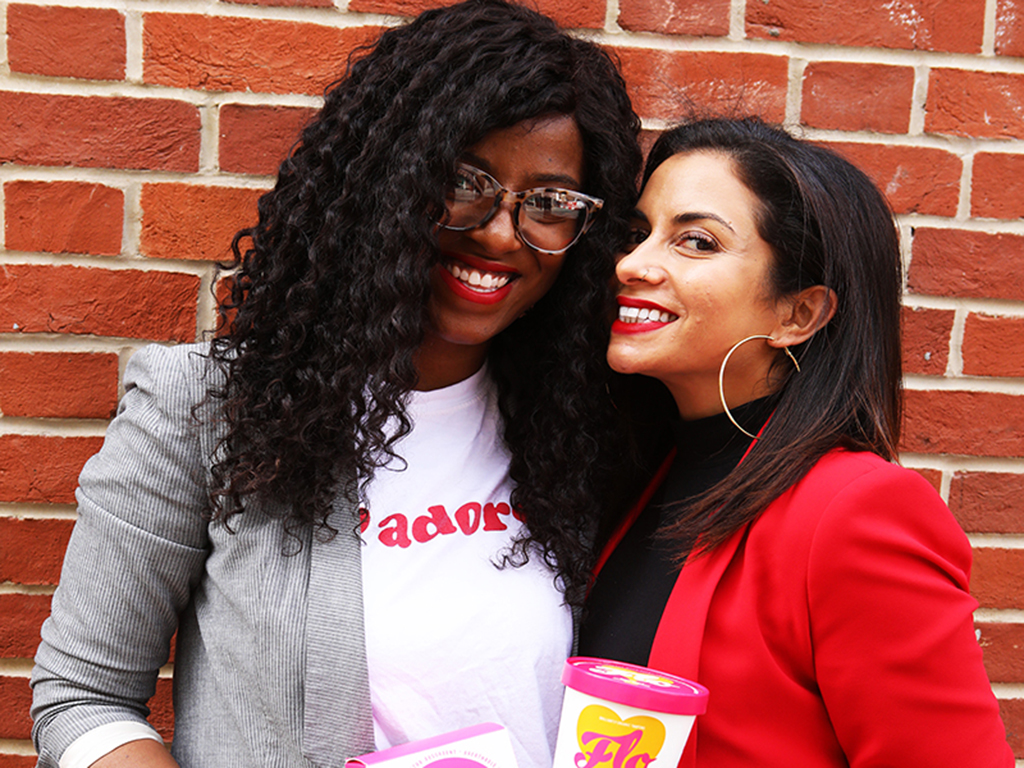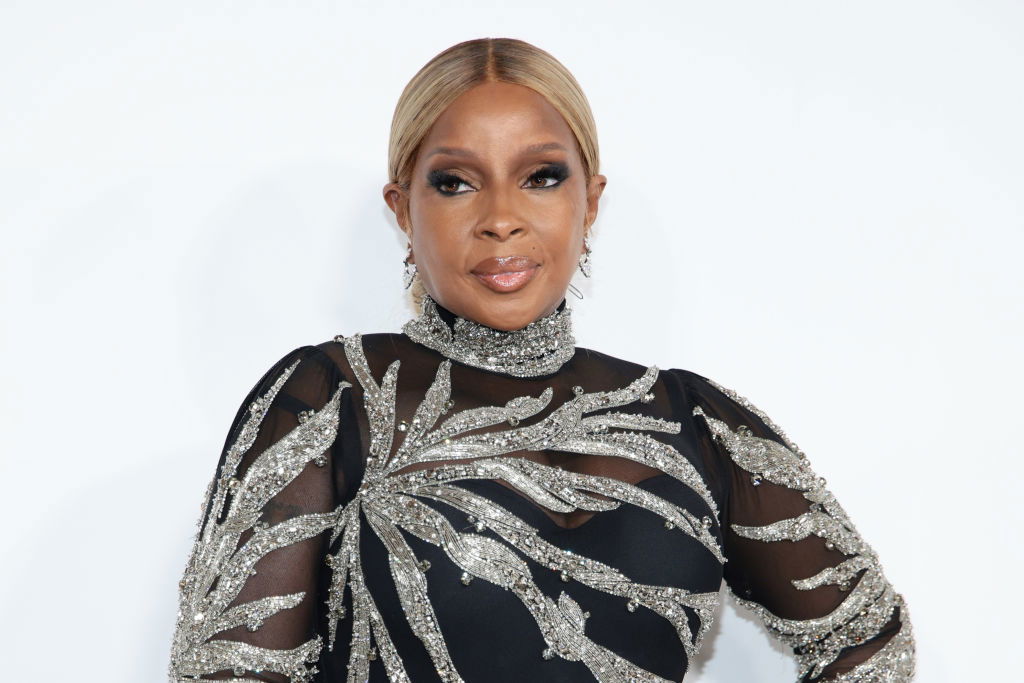
No founding story is complete without mentioning major turning points for the business. For the founders of Here We Flo, one of those “really big deal” moments came in 2019 when they saw their products on the shelves of a Boots store for the first time in London.
Up to that point, co-founders Susan C. Allen and Tara Chandra were mostly running Here We Flo as a side hustle. After raising about £14,000 in a Kickstarter campaign a couple years earlier, the women were slowly building a customer base by convincing local shops and health food stores to carry their period-care products.
Here We Flo is among a number of period-care startups in the past decade—including Cora, Thinx and August—that use organic ingredients or a more frank marketing approach. Whatever unique spin these companies take, they’re all trying to chip away at the three behemoths—Procter & Gamble, Kimberly-Clark and Edgewell Personal Care, which accounted for 78% of U.S. tampon sales in 2023, according to Euromonitor International.
Landing shelf space at the U.K.’s largest pharmacy chain—no small feat, by the way—paved the way for Allen and Chandra to build out Here We Flo and hire its first two employees. The deal also meant Boots shoppers could scoop up an alternative to the likes of Tampax, Playtex, Kotex, and o.b.: a bright pink, ice cream tub-shaped package filled with 100% organic cotton tampons.
Playful packaging may help attract the eye of some shoppers, while fine-print details are the selling point for others. The company donates 5% of all profits to charity from sales of its range of products—tampons, pads, period pants and condoms—that are all organically-sourced and sustainably packaged. The founders like to have fun, even in the pursuit of these environmental and social commitments, but they’re also chasing a more serious mission: To change conversations about feminine health and sexual wellness, stamping out any shame or stigma, so the next generation has a different experience when encountering life’s messiest moments.
Here We Flow changed the age-old conversation
“We want to make people laugh, then we want to make them think and then hopefully that’ll sort of set them up to have a conversation,” Allen says. “It’s having those conversations that’s really going to change the way society views these things.”
Conversations have always been at the heart of Here We Flo. During a break in-between classes at the London School of Economics in the mid-2010s, the duo were chatting about business ideas—where else but the bathroom—when inspiration struck. While Allen wanted to start the feminist mafia—like the PayPal mafia but better, she says—Chandra had a more tangible problem: The San Francisco native was having trouble finding organic tampons in London, a city replete with other natural fare.
That’s no longer a challenge for other women. Last year, Here We Flo sold nearly 2 million products across its various product lines: Flo (organic period care), Glo (sustainable bladder care) and XO! (eco-friendly vegan condoms). You can find the products seemingly everywhere, including Amazon, Target, Walmart, Whole Foods, Sprouts, Tesco and WHSmith, along with the bathrooms of the BBC, WeWork and Netflix offices.
Some key partnerships and accolades have helped the brand grow in recent years. Here We Flo recently teamed up with Netflix on a co-branded line of period-proof underwear. Then in 2022, the company debuted a 30-second TV commercial—dubbed “No More Period Drama”—after it was named the Grand Prix winner of the inaugural Sky Zero Footprint Fund, which came with a £1 million budget for advertising on the British broadcaster. In 2023, the company was named a Certified B Corporation® in recognition of its social and environmental impact. And this year, its products were featured in the first-ever period care display at Whole Foods.
Key partnerships—like the one with Netflix—have given the company more clout and brand recognition, Allen notes. Armed with a “very tiny” budget, Allen has overseen a marketing strategy defined by a voice she describes as funny, feminist and fierce. “That brand voice has really resonated with our customer, who we lovingly call ‘the genzennial,’ as well as their parents that are shopping for young Gen Z and Gen Alpha.”
While success has come via a mix of hard work, luck and timing, social media has played an important role in growing the brand. Here We Flo has consistently seen high engagement on social media—where followers number about 40,000 across Instagram, TikTok and LinkedIn—where you’re as likely to see posts celebrating the company’s milestones as you will find meme-worthy posts, shoutouts to trailblazing women who inspire the minority-led team and primers on more serious topics like cervical cancer.
“I’m proud to say everything that we have done has always been authentic, and we tried to move as transparently as possible so I think that our customers and community are able to grow with us,” Allen says. While the team is trying to change the narrative—one pinned Instagram post advocates people stop using the words “hygiene” and “sanitary” in reference to menstrual care—they also listen to conversations happening online.
Those conversations have become “much more raw, honest and organic” in the past decade, which has led to a notable shift in how companies market feminine care products, notes Olivia Dreizen Howell, who founded the marketing agency March Lion Media in 2013. Social media storytelling has unleashed a whole new marketing methodology that draws on vulnerability and honesty—and she’s done the same in building her divorce registry business, Fresh Starts Registry, by sharing “raw and honest” stories, including about her divorce.
“Marketers quickly realized that the best way to sell to women was to gain their loyalty on social media,” Howell says. “Once consumers felt seen and heard, and they could relate to what the influencer or ad was saying, they found themselves more likely to purchase the product.”
Ensuring customers feel valued and heard as the brand evolves
Making sure that consumers feel seen and heard has also been a core value at Here We Flo. Feedback from customers has allowed the company to learn as it has grown, Allen says, and they’ve even made some tweaks, including changing the composition of combo packs, as a result. And you may see Here We Flo popping up in the comments section to respond to negative feedback.
Additionally, some younger customers have been a driving force in demanding transparency on its organic and sustainability commitments—or, as Allen puts it, “verifying our integrity as a brand.”
For Here We Flo, the founders are looking ahead to new opportunities to grow. Some seven years into business, it remains scrappy and lean—the current headcount is 12—and Allen says the company has consistently been “punching above its weight.”
With plans to raise money from institutional investors soon, Allen is looking forward to growing the team—and her marketing budget. Still, Here We Flo is making traction as a challenger brand, particularly in the U.K., and is on a quest to gobble up market share from its much larger competitors.
“My dream is to be everywhere corporate period care is,” Allen says.
Photo courtesy of Here We Flo




